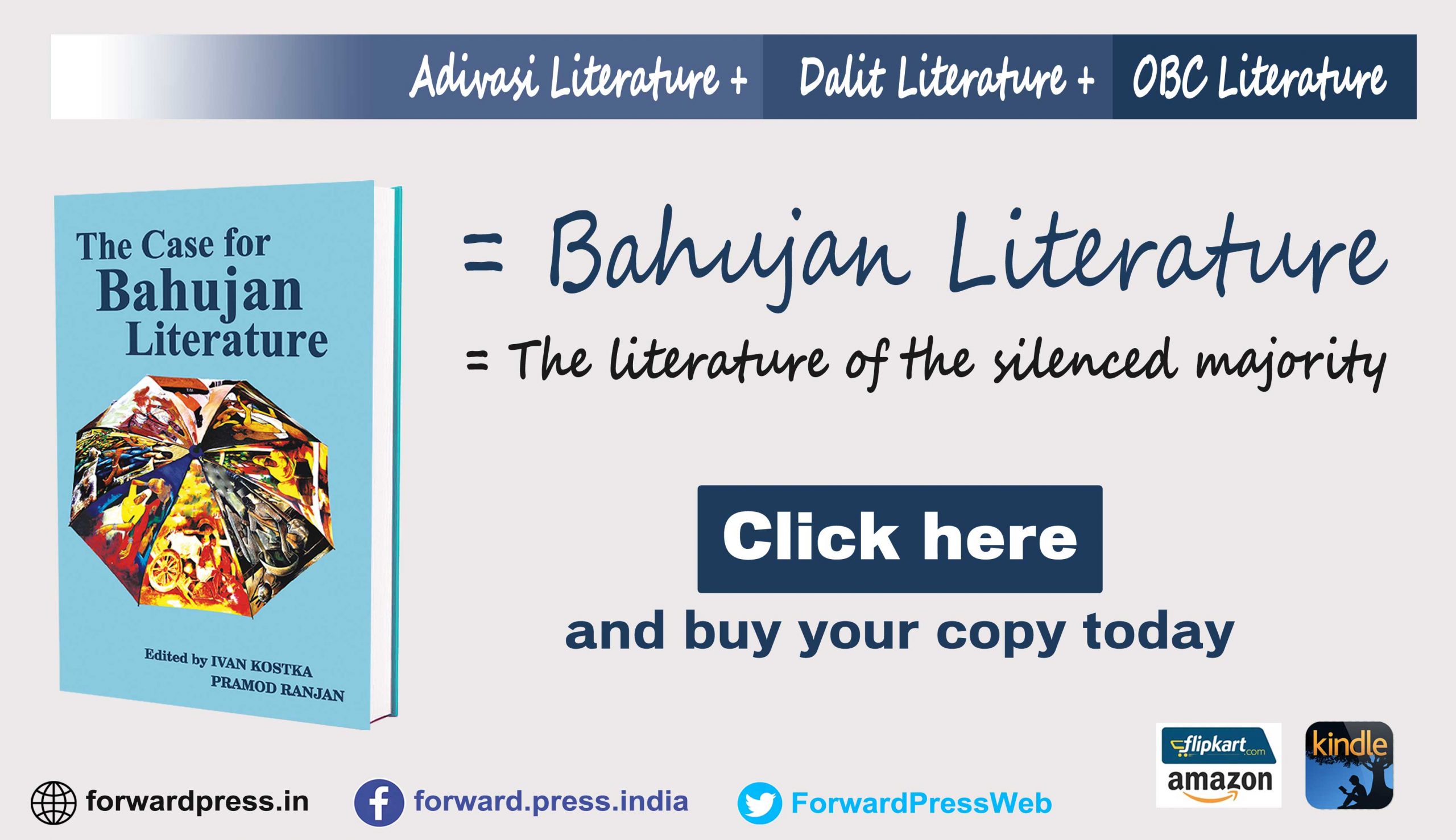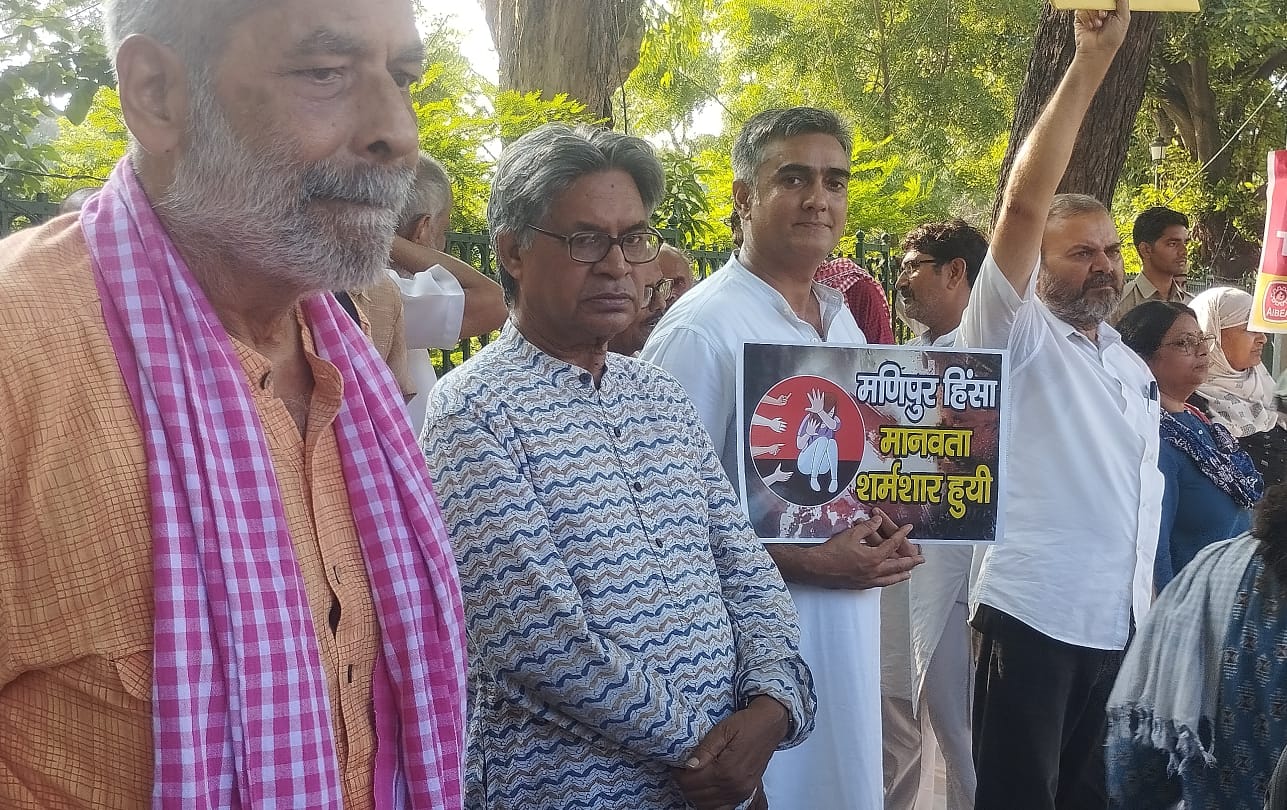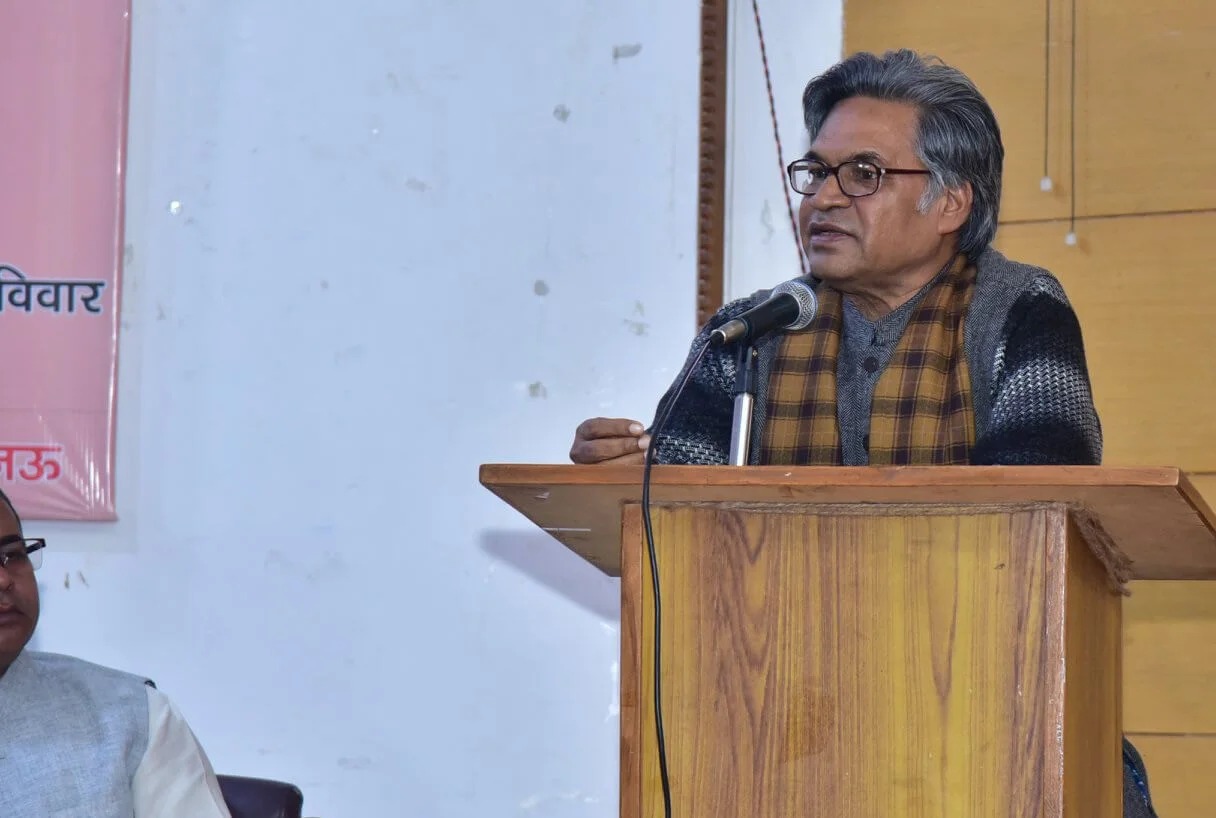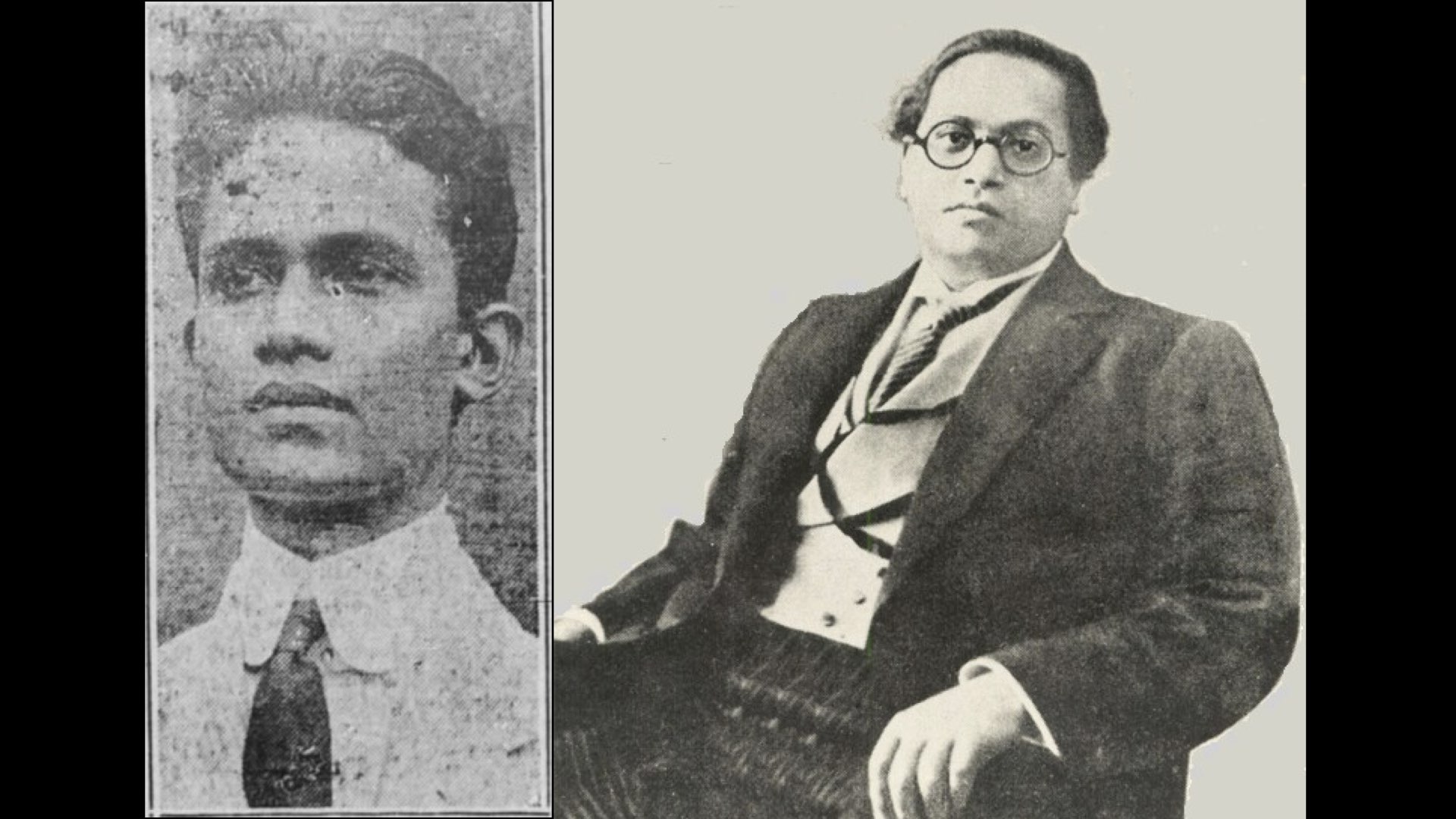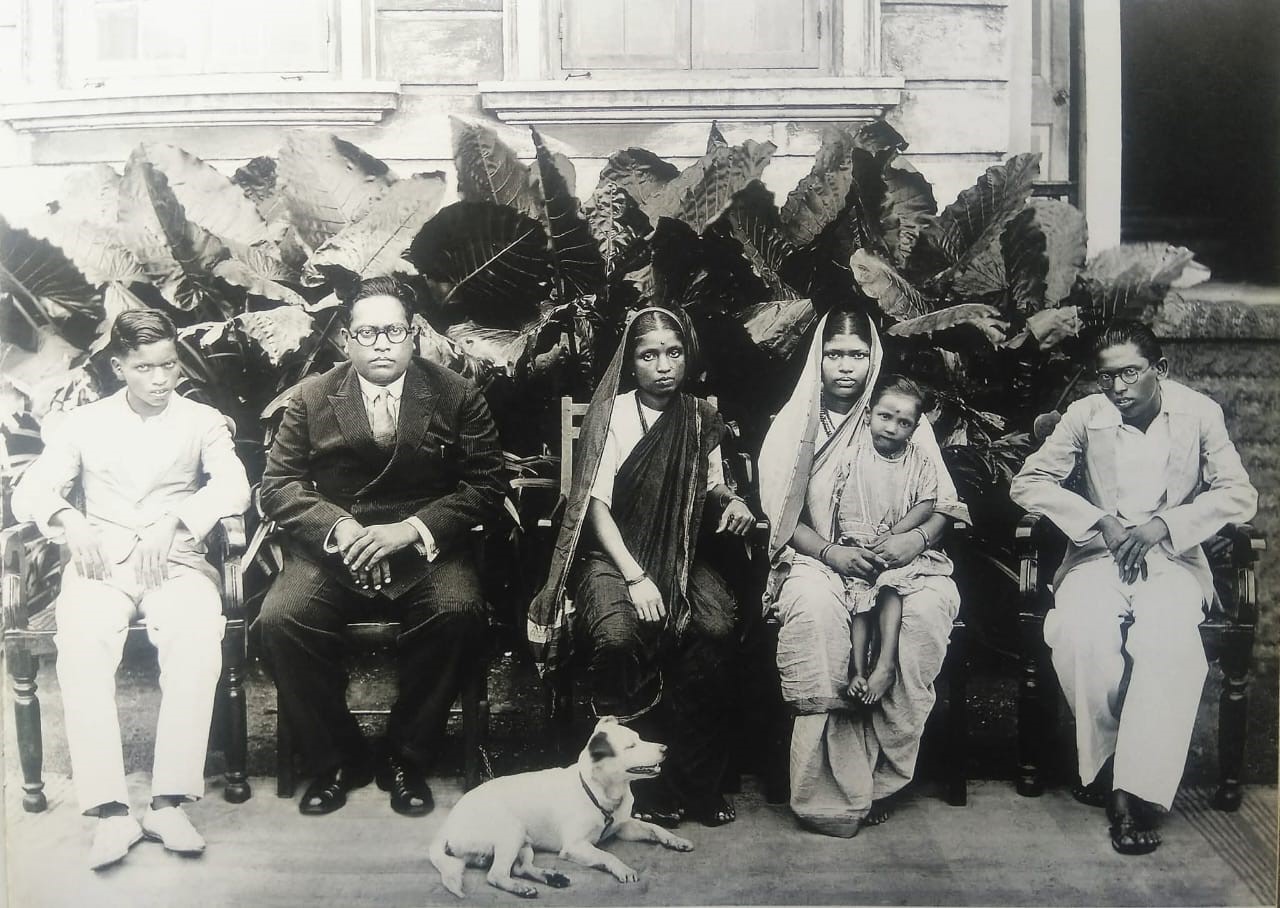Revolutionary poet Lal Singh Dil (11 April 1943 – 14 August 2007) left an indelible mark through his poetry on the struggle for equality, social justice and freedom that began in the late 1960s in Punjab, popularly known as Naxalite lehar (movement). He was born in his maternal village, Ghungrali Sikhãn, near Samrala, a small town on the Chandigarh-Ludhiana highway in Punjab. He belonged to a Ramdassia Chamãr family. Ramdassia Chamãrs and other Dalits were mostly deprived of agricultural land and other sources of livelihood. As was the case with other members of his community, the mainstay of Dil’s family was manual labour on the agricultural lands that belonged to farmers of their village. During the off season, landless Dalits survive on wages from non-agricultural labour, such as at construction sites. Dil’s father Raunqi Ram worked as a daily wager throughout his life. During a conversation with Gayatri Rajwade, Dil recalled a time when his grandmother used to sit and grind wheat the whole day for a single paisa. And in Dil’s own words, “[a]t the end of the day, we would dust our clothes, collect the wheat stuck on our clothes and mix that with water and drink it before sleeping” (as recounted by journalist Nirupama Dutt in an email dated 13 August 2007 to Dil’s close friend Amarjit Chandan, who forwarded it to me on 7 April 2021).
Despite the extreme poverty at home, Dil’s mother Chint Kaur sent him to school at Samrala. Dil did not find the atmosphere at the school very congenial. He wrote: “When I graduated to the higher classes, I started picking up some skills which thrilled me. I especially liked to trace a picture and then shade it. I traced an image of Ravidas Bhagat, which showed him standing. Below the image was a pair of shoes and some cobbler’s tools. The teacher in charge of the class looked at the drawing strangely and then laughed at it with some hatred, which was shared by the students. I brought the picture home with me from school.” (Available at https://poetlalsinghdil.wordpress.com/category/simran-kaler/, accessed on 8 April 2021). Against all odds, Dil became the first member of his clan to clear matriculation. His mother sold her earrings to enable him to attend college so that he could become a schoolteacher. He studied for a year in A.S. College, Khanna, close to his hometown. Thereafter, he enrolled for Junior Teachers’ Training course at SHG College in Behlolpur, again near his hometown, but had to leave after two years, without completing the course. He also joined a Gyani, an honours course in Punjabi literature, but again had to quit without completing it. From his schooldays, Dil had to support his studies by working part-time as a labourer/herder and a tutor; this was likely one of the main reasons behind his repeatedly failing to complete the courses he had joined after matriculation.

Along with extreme poverty, Dil also experienced social exclusion and caste-based oppression during different periods in his life. He recalled various instances of such bitter experiences in his autobiography Dastãn (‘The Story’): how as a small boy of 5 or 6, he was whipped and driven out of a landowner’s field in his village for daring to bathe at his well; how a comrade, a senior dominant-caste writer, took away a jug of water when he tried to reach for it at a party meeting; and how he felt deeply humiliated to learn that the mother of his female classmate, whom he was very fond of, ‘purified’ the tumbler in which he had been served tea, by casting it in the fire. All this in a society that otherwise boasted of its casteless social order. Amarjit Chandan, a close friend of Dil, writes in his “A Complete Story of an Incomplete Journey”, an introduction to the Dastãn, how Dil had suffered and exposed graphically the prevalence of the arrogance of caste superiority in his locality, at his school, and in the Naxalite organizations and even in police custody.
Though Dil was forced to withdraw from his studies, he continued to reflect critically on the environment in which he lived. He continued to capture the nuances of the exploitative system around him till his last moment. The medium that he chose to give expression to his experiences and observations during his life full of struggles was the subtlety of poetry. He was one of the most popular poets of the Naxalite movement in East Punjab, with a gravitas to match. As narrated in his autobiography, Lal Singh Dil was subjected to many inhuman tortures during police custody, and remained in jail for a long period of time. It was during his imprisonment that his first collection of radical poetry entitled Satluj di Hava (The Satluj Breeze) was published in 1971. His poetry immediately became an icon of the revolutionary struggle in Punjab as well as of the sorrows and sufferings of the poor and the Dalits.
After his release from jail, Dil went underground and that is how he spent about 15 years of his active life. He did all sorts of labour to keep himself and the struggle alive. He did not ask anybody for help. Whenever he had free time from hard manual labour, he would write and ended up with two more books: Bahut Sãre Suraj (So Many Suns), 1982; Satthar (A Sheaf), 1997; and his autobiography Dastãn. His entire poetry is available in a collection entitled Naglok (The World of the Nagas), published in 1998 and 2008. Nagas were the sons of the soil. It is commonly believed that Nagas were snake-worshippers and the sovereign rulers of their land before the arrival of the Aryans. He talked about them nostalgically in some of his poems. Two of them – Sham da Rung (The Shades of Evening) and Lamma Larra (The Long Caravan) are reproduced below. A long narrative poem called Billa Aj Phir Aaya (Billa Visited Again Today) was published posthumously in 2009.
Dil had started writing poetry at an early age while he was still in school. That some of his poems were published in reputed vernacular magazines like Preetlari, Nagmani and Lakeer, even before the publication of Satluj di Hawa (The Satluj Breeze) in 1971, his maiden collection of poetry, proves his innate hold over intricacies of poetry writing. His life and poetry, writes journalist Nirupama Dutt, “became grist to the mill of revolutionary politics, which worked happily for Dil, as he envisioned a new order free of caste and creed” (Scroll.in, 23 June 2019, accessed on 7 April 2021).
Though familiar with Dil’s poetry earlier, Nirupama came to know about the man himself only in the 1990s, when Dil returned to Samrala after spending many years out of Punjab (Scroll.in, 23 June 2019). By that time the Naxalite movement was almost over and many of the activists had resumed their normal course of life. Some of them had settled into respectable positions in the higher echelons of the government, media, academia and even business. A few of them settled abroad. However, for Comrade Dil, the only refuge was his mud house in his caste ghetto at Samrala, and the citadel of his thoughts and philosophy; he was quintessentially a gyan yogi. “A loner” is how Gulzar Mohammad Goria, one of the closest associates of Dil in Samrala, described Dil to me during an informal conversation a few days after his passing. He also said that with the financial support from some of his comrades abroad, Dil opened a small tea-stall near the bus terminal close to his home in Samrala. It was also during this time that Dil used to spend long periods in the solitude of the cremation grounds of his hometown for reasons best known to him. Nirupama met him at this stage, and since then she has been writing intermittently about Dil in newspapers and journals.

After Dil’s death in 2007, Nirupama translated his autobiography and a selection of his poetry that introduced him widely beyond his Punjabi-speaking region. In 2017, Trilok Chand Ghai, who formerly taught in Delhi University, translated 100 poems of Dil and published the collection under the title Lal Singh Dil: Selected Poems – Exclusion, Deprivation and Nothingness (Delhi: LG Publishers). Five of these poems were republished in the issue titled ‘Transitions’ (Series 3, No 18) of the reputed British literary magazine Modern Poetry in Translation (MPT) in 2012 and two of them were reproduced in MPT’s golden jubilee anniversary publication Centres of Cataclysm, Blood Axe Books, in 2016. Writing about Ghai’s translation, David Constantine, poet and editor, MPT, observed, “Trilok Chand Ghai’s English serves that cause. Translators carry fraternity across the frontiers of space and time. Again and again, in these translations, there is a tone, an accent, a phrase as in music, that will touch readers of English as the poet himself does through his mother tongue.” Harbhajan Singh, Punjabi poet and critic, wrote that Dil’s “poems don’t give us joy; they shame us. The poems that give us pleasure work to stabilize the already established values. The shaming poems uproot a person from his fixed position and challenge him to renew himself.” Amarjit Chandan wrote, “Contemplating the word images of the people portrayed by Lal one is reminded of Amrita Sher-Gil’s paintings.” His poetry is full of imagery of hard life, poverty, isolation, struggle, grief for the hapless, and faith in the victory of the toiling people. He wrote extensively on the Ghandilas and Tapprivasi (ever-roaming vagrants/itinerants) and fuel-gatherer nomad girls. Sham da Rung (The Shades of Evening) and Lamma Larra (The Long Caravan), reproduced below, crisply depict the life of the Ghandilas and Tapprivasi:
The Shades of Evening
The shades of evening like many before
The paths are heading for settlements
The lake turns back from offices
thrown out of work
The lake is drinking its thirst
Some city has set off on the road to the village
Throwing off all wages someone is leaving
Someone comes wiping on his dhoti
the blood of weak animals on his goad
The shades of evening like many before
The Long Caravan
Leaving behind another’s land
Loaded with the humiliation of rebukes
the long caravan moves on
along with the lengthening
shadows of evening
Children on donkeys’ backs,
fathers cradling dogs in their arms
Mothers carrying cauldrons
on their backs
their children sleeping in those cauldrons
The long caravan moves on
carrying on their shoulders
the bamboo of their huts
Who are these
starving Aryans
which India’s land
are they headed to occupy
Dogs are dear to young men
fancying loving faces in palaces
is not for them
These starving ones have left behind
yet another’s land
The long caravan moves on
His poetry valiantly confronted the deeply entrenched caste-based social exclusion and other variants of oppression. Dil sarcastically touched on the aspect of caste following its victims even after death, in his often-quoted poem Zãt (Caste) reproduced below:
Caste
You love me, do you?
Even though you belong to another caste. But do you know
Our elders do not even cremate their dead
at the same place
His poetry also boldly communicated the vivid expression of his verbal revolt against the oppressive dominant social structures. Dil audaciously underlined the presence of rebellion beneath the repression in another widely lauded poem Shabad (Words):
Words
Words have been uttered long before us,
And for long after us,
Chop off every tongue if you can,
But the words have still been uttered

Dil was a humble visionary poet. He never hankered after fame, and was happy to work incognito. He would often attend programmes organized by the progressives in different parts of Punjab but never make efforts to make his presence felt. I vividly remember him once standing unassumingly on the side of the entrance to the seminar hall of Amardeep Singh Shergill Memorial College, Mukandpur (SBS Nagar, Punjab). Neither did he make any gesture to be recognized nor did any of the visiting dignitaries take notice of him. One of the participants whom I was accompanying said that Dil used to keep himself busy in his own unique way and was never heard indulging in self-propagation or venting his personal concerns. He was reticent to the core, but at the same time there existed a volcano of revolutionary thoughts and ideals within his frail physical frame. He wanted to see radical political transformation during his lifetime, and was impatient to put an end to the sufferings of those considered the lowest of the low. Nirupama has written that “Dil was looking for the revolution that would break all shackles. In his poetry he became the sensitive spurned child and engaged in a dialogue with god, empowered as he was by hopes of the thundering spring” (Scroll.in, 23 June 2019, accessed on 7 April 2021).
What distinguished Lal Singh Dil from his contemporary revolutionary poets was his sole concern not only for the lowest of the low, but also for those who were severely marginalised and discarded by society, and forced to live a vagrant life. He deeply sympathized with the landless manual workers, daily wagers, nomadic men and women, especially the black-cloth-donning girls who gathered fuel to keep the fire burning in the hearths outside their thatched huts. Though he was not able to continue his studies and attain formal higher education, his deep association with the harsh realities of society taught him precious lessons about the varied dimensions of life. His bitter experiences at school and college, in the Naxalite movement, police custody, and day-to-day interaction with people from across religions, imbued and enriched his poetry with subtle nuances, anecdotes, signs and symbols. These have enabled his readers to see beyond the immediate and catch a glimpse, however fleeting, of life through the eyes of the oppressed. Dil’s poetry, in fact, was the cradle of his struggle for an egalitarian social order. It is the voice of the voiceless and the wretched of this earth.
(All poems translated from the Punjabi by Nirupama Dutt. Available at https://parchanve.wordpress.com/category/authors/lal-singh-dil/, accessed on 8 April 2021).
(Copy-editing: Anil)
Forward Press also publishes books on Bahujan issues. Forward Press Books sheds light on the widespread problems as well as the finer aspects of Bahujan (Dalit, OBC, Adivasi, Nomadic, Pasmanda) society, culture, literature and politics. Contact us for a list of FP Books’ titles and to order. Mobile: +917827427311, Email: info@forwardmagazine.in)
The titles from Forward Press Books are also available on Kindle and these e-books cost less than their print versions. Browse and buy:
The Case for Bahujan Literature
Dalit Panthers: An Authoritative History
